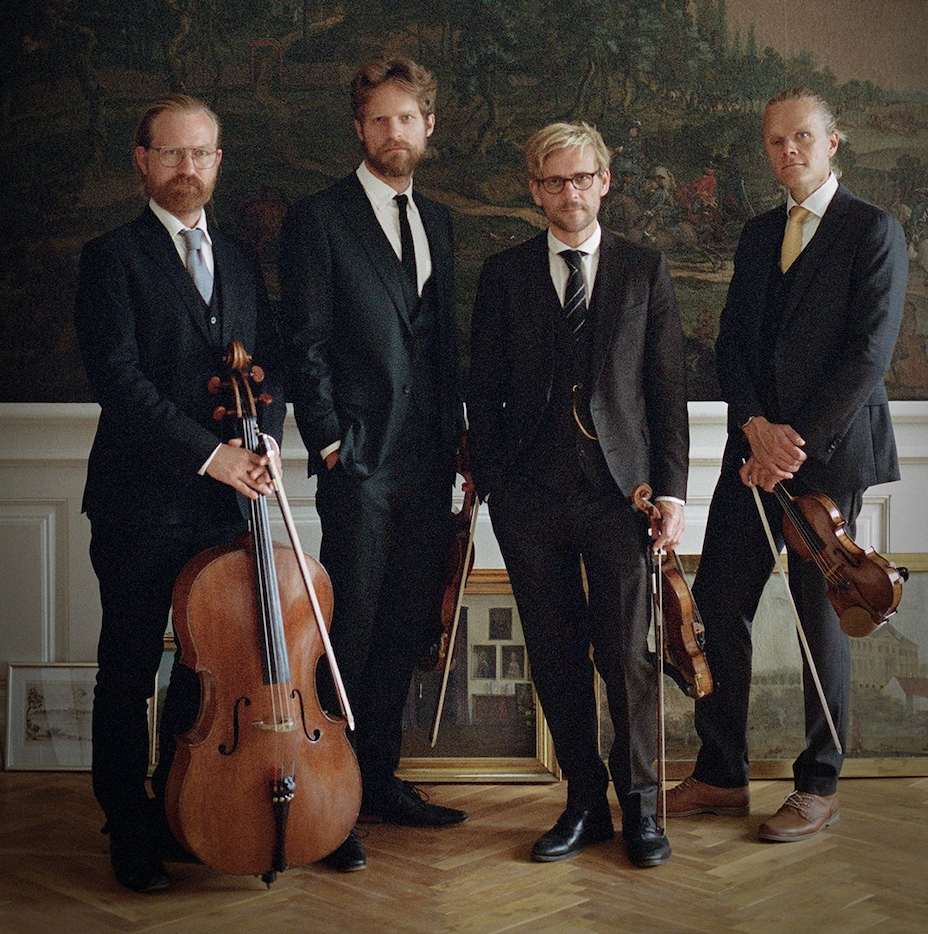Tuesday 11/12 at Old Cabell Hall
Universally hailed for its instrumental prowess, emotive performances, and wide- ranging repertoire, the Danish String Quartet kicks off a series of seven eastern U.S. dates at UVA’s Old Cabell Hall. The Grammy-nominated foursome, who have been tearing it up for more than 20 years, will perform a program rich in traditional classical bangers, eschewing their inclination to include Scandinavian composers or folk numbers from their home region.
The set begins with high drama, Quartet in G minor Op. 20/3 (1773) from Haydn, prime mover of the quartet form. Noted for its dramatic use of pauses and other creative choices, the innovative and enigmatic piece was revered by Haydn’s pupil Beethoven, and later by Brahms, who kept an autographed manuscript of it.
Stravinksy’s Three Pieces for String Quartet (1922) follows, flaunting its unsettling early 20th-century inventiveness by rushing out in blunt stabs and dark, languid turns—in a very succinct seven minutes. Next, O’Carolan’s Three Melodies from the blind Irish harpist whose “Mabel Kelly” kicks off DSQ’s latest record, Keel Road. O’Carolan seems the outlier among the genre’s biggest marquee names. The evening is rounded out with teenage Mozart’s cheerful Divertimento in F Major, K. 138 (1772) and Schubert’s final quartet from 1826, No. 15 in G Major, D. 887.
There’s no disputing the serious talent and dedication of the DSQ, Danish boyhood friends Frederik Øland (violin), Rune Tonsgaard Sørensen (violin), and Asbjørn Nørgaard (viola), who were joined by Norwegian Fredrik Schøyen Sjölin (cello) in 2009. Yet it’s refreshing to discover that they handle the whole endeavor without the life-sucking stoicism of many of their robotic contemporaries. On their website they joke about being compared to Vikings (“We are only pillaging the English coastline occasionally”), and mention that while playing string quartets is a difficult job, the pleasure they get from playing together keeps them performing—and exudes a palpable joy shared by their audiences: “Music is a way to hang out with friends, and we hope we can continue to hang out for many, many years.”
